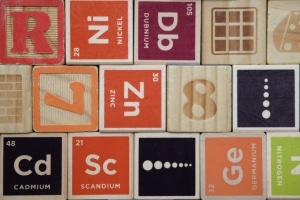Summary
A good PhD supervisor has a track record of supervising PhD students through to completion, has a strong publication record, is active in their research field, has sufficient time to provide adequate supervision, is genuinely interested in your project, can provide mentorship and has a supportive personality.
Introduction
The indicators that you’ll have the best chance of succeeding in your PhD project are multi-factorial. You’ll need to secure funding, find a research project that you’re interested in and is within your academic area of expertise, maybe even write your own research proposal, and find a good supervisor that will help guide you through PhD life.
As you research more into life as a doctoral student, you’ll appreciate that choosing a good supervisor is one of the most important factors that can influence the success of your project, and even If you complete your PhD at all. You need to find a good supervisory relationship with someone who has a genuine research interest in your project.
This page outlines the top qualities to look for as indicators of an ideal PhD supervisor. But before we get to that, we should be clear on precisely what the supervisor is there to do, and what they are not.
The Role of a PhD Supervisor
A PhD supervisor is there to guide you as you work through PhD life and help you make informed decisions about how you shape your PhD project. The key elements of their supervisory role include:
- To help ensure that you stay on schedule and maintain constant progress of your research so that you ultimately finish your PhD within your intended time frame, typically three to four years.
- To advise and guide you based on their knowledge and expertise in your subject area.
- To help you in the decision-making process as you design, prepare and execute your study design.
- To work with you as you analyse your raw data and begin to draw conclusions about key findings that are coming out of your research.
- To provide feedback and edits where necessary on your manuscripts and elements of your thesis writing.
- To encourage and motivate you and provide ongoing support as a mentor.
- To provide support at a human level, beyond just the academic challenges.
It’s important that you know from the outset what a supervisor isn’t there to do, so that your expectations of the PhDstudent-supervisor relationship are correct. A supervisor cannot and should not create your study design or tell you how you should run your experiments or help you write your thesis. Broadly speaking, you as a PhD student will create, develop and refine content for your thesis, and your supervisor will help you improve this content by providing you with continuous constructive feedback.
There’s a balance to be found here in what makes a good PhD supervisor, ranging from one extreme of providing very little support during a research project, to becoming too involved in the running of the project to the extent that it takes away from it being an independent body of work by the graduate student themselves.
Ultimately, what makes a good supervisor is someone you can build a rapport with, who helps bring out the best in you to produce a well written, significant body of research that contributes novel findings to your subject area.
Read on to learn the key qualities you should consider when looking for a good PhD supervisor.
Qualities to Look For in A Good PhD Supervisor
1. A Track Record of Successful PhD Student Supervision

A quick first check to gauge how good a prospective supervisor is is to find out how many students they’ve successfully supervised in the past; i.e. how many students have earned their PhD under their supervision. Ideally, you’d want to go one step further and find out:
- How many students they’ve supervised in total previously and of those, what percentage have gone onto gain their PhDs; however, this level of detail may not always be easy to find online. Most often though, a conversation with a potential supervisor and even their current or previous students should help you get an idea of this.
- What were the project titles and specifically the areas of research that they supervised on? Are these similar to your intended project or are they significantly different from the type of work performed in the academic’s lab in the past? Of the current students in the lab, are there any projects that could complement yours
- Did any of the previous PhD students publish the work of their doctoral research in peer-reviewed journals and present at conferences? It’s a great sign if they have, and in particular, if they’re named first authors in some or all of these publications.
This isn’t to say that a potential supervisor without a track record of PhD supervision is necessarily a bad fit, especially if the supervisor is relatively new to the position and is still establishing their research group. It is, however, reassuring if you know they have supervision experience in supporting students to successful PhD completion.
2. Is an Expert in their Field of Research

As a PhD candidate, you will want your supervisor to have a high level of research expertise within the field that your own research topic sits in. This expertise will be essential if they are to help guide you through your research and keep you on track to what is most novel and impactful to your research area.
Your supervisor doesn’t necessarily need to have all the answers to questions that arise in your specific PhD project, but should know enough to be able to have useful conversations about your research. It will be your responsibility to discover the answers to problems as they arise, and you should even expect to complete your PhD with a higher level of expertise about your project than your supervisor.
The best way to determine if your supervisor has the expertise to supervise you properly is to look at their publication track record. The things you need to look for are:
- How often do they publish papers in peer-reviewed journals, and are they still actively involved in new papers coming out in the research field?
- What type of journals have they published in? For example, are most papers in comparatively low impact factor journals, or do they have at least some in the ‘big’ journals within your field?
- How many citations do they have from their research? This can be a good indicator of the value that other researchgroups place on these publications; having 50 papers published that have been cited only 10 times may (but not always) suggest that this research is not directly relevant to the subject area or focus from other groups.
- How many co-authors has your potential supervisor published with? Many authors from different institutions is a good indicator of a vast collaborative professional network that could be useful to you.
There’re no hard metrics here as to how many papers or citations an individual needs to be considered an expert, and these numbers can vary considerably between different disciplines. Instead, it’s better to get a sense of where your potential supervisor’s track record sits in comparison to other researchers in the same field; remember that it would be unfair to directly compare the output of a new university lecturer with a well-established professor who has naturally led more research projects.
Equally, this exercise is a good way for you to better understand how interested your supervisor will be in your research; if you find that much of their research output is directly related to your PhD study, then it’s logical that your supervisor has a real interest here. While the opposite is not necessarily true, it’s understandable from a human perspective that a supervisor may be less interested in a project that doesn’t help to further their own research work, especially if they’re already very busy.
Two excellent resources to look up publications are Google Scholar and ResearchGate.
3. Has Enough Time to Provide Good PhD Supervision

This seems like an obvious point, but it’s worth emphasising: how smoothly your PhD goes and ultimately how successful it is, will largely be influenced by how much time your research supervisor has to provide guidance, constructive academic advice and mentorship. The fact that your supervisor is the world’s leading expert in your field becomes a moot point if they don’t have time to meet you.
A good PhD supervisor will take the time to meet with you regularly in person (ideally) or remotely and be reachable and responsive to questions as and when they arise (e.g. through email or video calling). As a student, you want to have a research environment where you know you can drop by your supervisors’ office for a quick chat, or that you’ll see them around the university regularly; chance encounters and corridor discussions are sometimes the most impactful when working through problems.
Unsurprisingly, however, most academics who are well-known experts in their field are also usually some of the busiest too. It’s common for established academic supervisors to have several commitments competing for their time. These can include teaching and supervising undergraduate students, masters students and post-docs, travelling to collaborator meetings or invited talks, managing the growth of their academic department or graduate school, sitting on advisory boards and writing grants for funding applications. Beware of the other obligations they may have and how this could impact your work relationship.
You’ll need to find a balance here to find a PhD supervisor who has the academic knowledge to support you, but also the time to do so; talking to their current and past students will help you get a sense of this. It’s also reassuring to know that your supervisor has a permanent position within your university and has no plans for a sabbatical during your time as a PhD researcher.
4. Is a Good Mentor with a Supportive Personality

A PhD project is an exercise in independently producing a substantial body of research work; the primary role of your supervisor should be to provide mentoring to help you achieve this. You want to have a supervisor with the necessary academic knowledge, but it is just as important to have a supportive supervisor who is actively willing and able to provide you constructive criticism on your work in a consistent manner. You’ll likely get a sense of their personality during your first few meetings with them when discussing your research proposal; if you feel there’s a disconnect between you as a PhD student and your potential supervisor at this stage, it’s better to decide on other options with different supervisors.
A good supervisor will help direct you towards the best outcomes in your PhD research when you reach crossroads. They will work with you to develop a structure for your thesis and encourage you to set deadlines to work to and push you to achieve these. A good mentor should be able to recognise when you need more support in a specific area, be it a technical academic hurdle or simply some guidance in developing efficient work patterns and routines, and have the communication skills to help you recognise and overcome them.
A good supervisor should share the same mindset as you about finishing your PhD within a reasonable time frame; in the UK this would be within three to four years as a full-time university student. Their encouragement should reflect this and (gently) push you to set and reach mini-milestones throughout your project to ensure you stay on track with progress. This is a great example of when a supportive personality and positive attitude is essential for you both to maintain a good professional relationship throughout a PhD. The ideal supervisor will bring out the best in you without becoming prescriptive in their guidance, allowing you the freedom to develop your own working style.
Finding a PhD has never been this easy – search for a PhD by keyword, location or academic area of interest.
Conclusion
To sum up, the qualities you should look for in a good PhD supervisor are that they have a strong understanding of your research field, demonstrated by regular and impactful publications, have a proven track record of PhD supervision, have the time to support you, and will do so by providing mentorship rather than being a ‘boss’.
As a final point, if you’re considering a research career after you finish your PhD journey, get a sense of if there may any research opportunities to continue as a postdoc with the supervisor if you so wanted.











